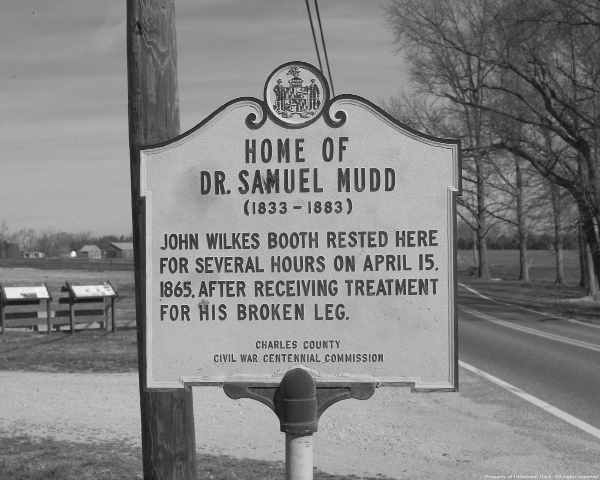“I have lost all confidence in the veracity and honesty of the Northern people,
and if I could honorably leave the
country for a foreign land, I believe
our condition would be bettered.”
—Letter to Frances Mudd,
by Samuel Mudd,
September 5, 1865
His bitterness toward the Black Republican regime was rooted, however, in much more than his unjust treatment at their hands. In an 1862 letter canceling his subscription to a New York journal, Mudd refers to Yankees as “Puritanical, long faced” hypocrites who had “caused the destruction of one of the most glorious nations upon the face of the earth.” Mudd was well aware of the dire implications of the South’s defeat, but writing from Fort Jefferson prison in 1867, he expresses the hope that the old republic will someday be restored:
The New York Herald, so bitter before in its denunciations of everything Southern or Democratic, has now turned around and advocates their principles . . . By straws we know the direction of the wind, and we can conclude from these incidents the allaying of strife, and the return to sober reason and justice.
The North’s victory, rather, would signal the end of constitutional rule and the ascendancy of the tyrannical multitude Mudd so feared. Today, we have the spectacle of “conservative” media personalities praising the legacy of Lincoln and shouting down anyone critical of Old Abe, unaware of the inherent contradiction in their daily rants against that which he wrought.
Because most Americans—including more than a few Medicare-loving Tea Party protesters—are unversed in the ingenious, if flawed, compact crafted by the Framers, they willingly cede to the federal government many and undefined powers. As predicted by John C. Calhoun, political control is shared by two corrupt and virtually indistinct parties who vilify dissenters, court the demimonde, and govern by polls in the tradition of Lincoln’s successor, Andrew Johnson, about whom Dr. Mudd writes, “The President does not feel warranted in the execution of his plainest duties under the Constitution without first consulting the mob spirit.” From prison, Mudd laments,
Our country seems now not to be governed by the Constitution, or by law, but by unbridled popular or public opinion, of which I have no doubt many others, as in my case, have been made victims.
As Maryland’s most famous Confederate spy, Rose O’Neal Greenhow, notes in her memoirs, slavery was only a predicate of a war waged to subjugate the South and to establish a more powerful nationalist government. The peculiar institution alone did not separate the nations above and below the Mason-Dixon Line. Dr. Mudd believed that Southerners were “differently constituted,” possessing a keener “sense of honor,” and that Yankees were a “Pharisaical . . . stealthy, and cowardly” people who made “good cow drivers, pickpockets and gamblers.” In January 1868, 14 months before he was to be pardoned by President Johnson, a melancholic Mudd tells his wife, Frances,
Nothing would afford me more pleasure than to be able to comfort & console you in your present unhappy & helpless condition. So long as the Government is controled [sic] by men without souls & less honesty I can not promise you nor myself anything. The Spirit of infidelity pervades the whole Country. This is not only in regard to God, but to the laws & the Constitution of the Country. They are materialists & think only of self-gratification—exulting in the ruin & misery they cause others.
A century and a half later, soulless materialism still reigns in America. Dreaming of a uniracial global utopia, unholy elites alternately placate and fend off a feral underclass and manipulate the overfed and unthinking throngs in the middle: Bill O’Reilly’s “the folks.” Beyond all this, Samuel Mudd lies buried just off a busy highway in carpetbagger-ridden Southern Maryland at old St. Mary’s Catholic Church—the place, it is believed, he first met fellow Marylander and celebrated actor John Wilkes Booth.

Leave a Reply